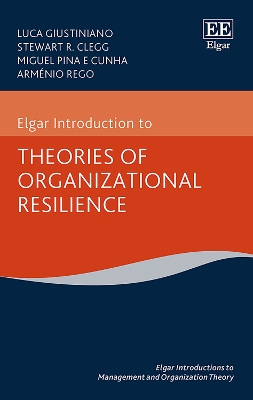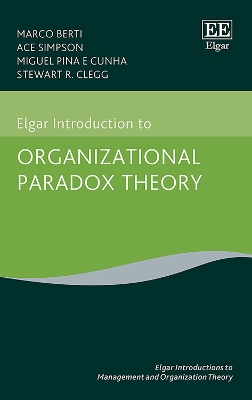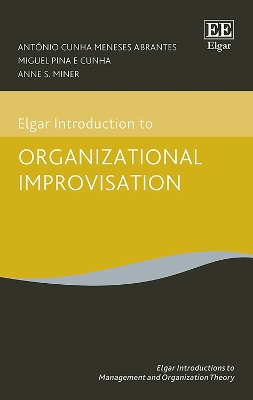Elgar Introductions to Management and Organization Theory
4 total works
Elgar Introduction to Theories of Organizational Resilience
by Luca Giustiniano, Stewart R Clegg, Miguel P.e. Cunha, and Armenio Rego
This book provides an accessible yet rigorous systematization of individual resilience, team resilience and organizational resilience. Rich with real-life concept illustrations and containing practice-oriented tools, reflection questions and exercises, it shows how resilience can be cultivated across levels of organizational aggregation: individuals, teams, organizations and communities. The authors distinguish individual and collective resilience from related constructs and shed light on the boundaries of resilience and its potential implications for management practice.
Elgar Introduction to Theories of Organizational Resilience will serve as a key resource for graduate students and advanced undergraduate students as well as academics and practitioners who are interested in deepening their understanding of resilience.
Elgar Introduction to Organizational Paradox Theory
by Marco Berti, Ace Simpson, Miguel P. Cunha, and Stewart R Clegg
Opening with a critical analysis of research to date, the authors explore ideas related to dialectics and ambidexterity in organizations, as well as pragmatic approaches to organizational paradox. Chapters propose new ways to analyse responses to paradox, bringing together influential contributions that consider the nestedness of paradox, the relation between power and paradox, and paradoxes of positive organizational scholarships.
Providing novel approaches to the discipline, this cutting-edge book is crucial for graduate students and management scholars interested in employing organizational paradox theory as a conceptual framework for their research.
Elgar Introduction to Organizational Improvisation Theory
by Antonio C.M. Abrantes, Miguel P. Cunha, and Anne S. Miner
This book pulls together in one place major advances in understanding organizational improvisation. It describes major theoretical- and evidence-based advances in models of organizational improvisation, which the authors define as the deliberate and substantive convergence of the design and execution of a novel activity, that can be created at the individual, team, or organizational level. The authors provide, integrate and consolidate the existing literature on organizational improvisation and offer a comprehensive analysis of key processes. They go beyond a mechanical literature review to include illustrative mini-cases, novel concepts in contemporary work and short personal comments from researchers in the field.
Grounded in rigorous academic work to date, this book speaks both to scholars interested in developing research on organizational improvisation and to managers. It discusses both promising paths for academic research and practical recommendations, especially those who deal with unpredictable environments that force them to either improvise or to face harmful or even fatal outcomes for organizational members and/or the entire organization.
Elgar Introduction to Designing Organizations
by Miguel P.e. Cunha, Stewart Clegg, Medhanie Gaim, and Luca Giustiniano
The authors explore how, in a world characterized by relentless change and volatility, traditional bureaucracies of the past are increasingly regarded as being too slow and centralized. Instead, emerging ideas, such as platforms, ecosystems, holacracies, agility and improvisation are gaining purchase. Focusing on key trends and forms of design, the book offers an approach to organizing that accommodates paradoxes and offers a fresh view on managing organizational design.
Rich in anecdotes and examples, the Elgar Introduction to Designing Organizations will be a useful guide for business and management scholars and advanced students with a focus on organizational studies and innovation. It will be beneficial for business managers thinking about how to design their organization so that it is fit for contemporary purposes.



